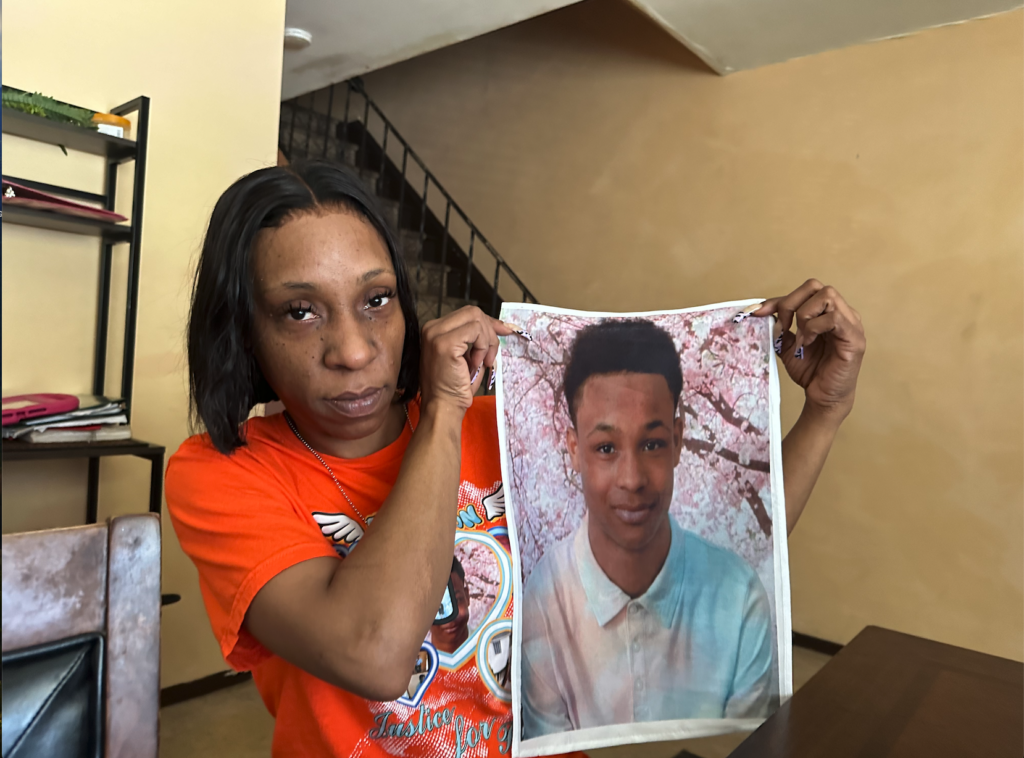Linking L.I.’s past and future down at Davis Peach Farm

The Early Treat peach ripens in late June.
Sixteen-year-old Christine Breud sat in a corner of David Davis’ farm stand in Mt. Sinai 23 years ago and sulked. She was hot; she was tired; and she was sick. To top it all off, she’d ripped a hole in her jeans earlier that morning and arrived late for her first day at work, torching any chances she had at making a good impression on Mr. Davis.
“Just great,” she thought.
Nearby, 55-year-old David Davis muttered disapprovingly to one of his managers.
“She’s no good,” he said. “Get rid of her.”
The next day, Mr. Davis was shorthanded, and Ms. Breud was the only other worker available. So he called her back for a second chance. Today, they operate the Davis Peach Farm together as husband and wife.
“He hated me — hated me that first day,” Ms. Davis recalled. “But I guess I kind of grew on him.”
The Davis Peach Farm in Wading River is celebrating its 100th anniversary of growing peaches on Long Island, and the Davises, who are 39 years apart, believe that the farm has bridged more than just age in its century of farming.
“Long Island was started by just a bunch of farmers. That’s all the land was worth,” Ms. Davis said. “And although a lot of farms are going out of business nowadays, there’s a lot of us trying to be innovative.
“We’re trying to make farming interesting to new generations. If we can incorporate some of the older things that we used to do, maybe we can bring a little bit of the history of the island back to today’s market.”
Although Mr. Davis’ father, Archer Davis, planted the first peach trees in 1910, the family had been farming in Mt. Sinai for well over a century beforehand, cultivating over 120 acres of property with every kind of fruit and vegetable they could plant, including broccoli and cauliflower. When his father died in 1948, the younger Mr. Davis decided to shift the farm’s focus entirely to peach production.
“He saw that the public really started to like the peaches, and he felt that it would be better to focus just on one thing that people liked and get good at it,” Ms. Davis said. “And he’s the best at it. People come from the whole tri-state area to consult him on what the best varieties are. It’s really a great accomplishment.”
Although the farm originated in Mt. Sinai, Mr. Davis purchased on old potato farm in Wading River along Hulse Landing Road in 1988, planting an entirely new peach orchard and opening the farm to U-pickers in 1991, something he vowed he would never do.
“U-pick just seems to attract people who think they can pick stuff and not pay for it,” Mr. Davis said. “But I think it’s worked all right for us.”
Over the next decade, financial difficulties began to slowly strip the Davises of their Mt. Sinai farmland. The town’s high property taxes eventually forced Mr. Davis to sell the last of his dwindling 32-acre farm in 2001 and move the operation entirely to Wading River, where he expanded his U-picking operation and began planting other crops, such as figs, plums, and apples. Although property taxes were much more affordable in Wading River, abandoning the Mt. Sinai farm was a heart-wrenching decision.
“It took me five years. I couldn’t drive past it for five years afterwards,” Ms. Davis said. “I still get emotional thinking about it. People are under the impression that, ‘Oh, they sold out, and now they’re millionaires,’ but that’s just not true. What were we supposed to do? We’re farmers.”
The Davises weren’t the only farmers forced to sell their property in 1988. Four other families who cultivated land behind the Davises’ Mt. Sinai farm couldn’t afford the town’s high property taxes and eventually sold their land to developers. Today, Ms. Davis said, rows of condominiums line the once sprawling farmland. The Davises are the only farmers from the Mt. Sinai group still farming today, she said.
“The expense of what we’re producing is going up, up, up, and we can’t just turn the expense over to the customer — who would buy from us?” she said. “Every year it’s tough, and it’s not just us. It’s everyone.”
Farming, she said, is a risky enterprise no matter how you slice it, and at the end of the year, most farmers just barely make ends meet. However, despite the yearly financial frustrations of Long Island farming, the Davises believe it’s worth it.
“We could have just sold and given up and, oh … I don’t know — become truck drivers or something,” Ms. Davis said. “But I love this place. I wouldn’t change a single day of it, not one single day. Even when things are terrible, and your equipment breaks down, and there’s a hurricane, and you lose half your crop, it’s worth it.”
In the end, the Davises hope to continue riding the waves of farm life with all the same chutzpah that has characterized their family business for the past 100 years.
“I would love to have another hundred years of growing peaches on Long Island,” Ms. Davis said. “I have visions of kind of making it the way it was a hundred years ago, with tons of vegetables and farm animals. I want to kind of blend Long Island’s past with Long Island’s future. I don’t want to turn the place into a supermarket. I’d like to keep that old-time history.”








